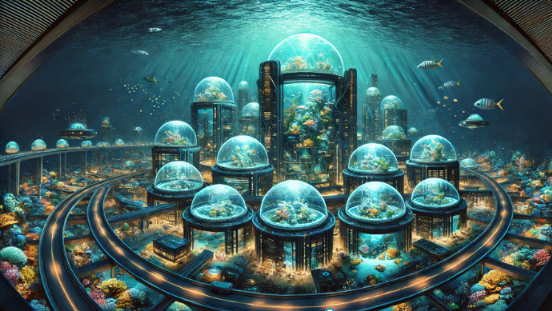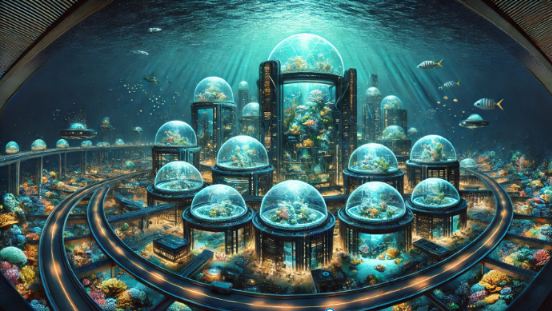The economic repercussions of COVID-19 have dealt a heavy blow to intimate music venues in the U.S. and abroad. According to the music industry news platform Hypebot, “The UK lost 125 smaller music venues” in 2023, “and Australia lost 1,300 or one-third of its small and midsized music venues since the start of the COVID pandemic. While no firm numbers exist for the U.S., dozens of venues, independent promoters, and agents… [say] that a similar crisis is imminent.”

Jim Lucchese, CEO of the music events company Sofar Sounds, told Forbes in March 2024, “Cities have become increasingly hostile, during and after [the pandemic], to traditional smaller venues that typically book local artists, with a modest cover charge, where you would just go discover new music live.”
Nonprofit art spaces face similar challenges. In January 2024, Susana Bruhn, executive director of the Kansas City, Missouri, arts organization GUILDit, told the digital news platform Flatland that “the majority of art nonprofits haven’t been able to find success since COVID.”
In light of these concerns, the history of a volunteer-run nonprofit called the Aquadome is an encouraging reminder that small centers for music and art can survive seemingly insurmountable setbacks, and the closure of a venue is not necessarily the end of the story.
Between 2000 and 2020, the Aquadome provided a drug-and-alcohol-free forum for live music, art, and community gatherings in Kirksville, Missouri. Besides concerts, it hosted events such as poetry slams, art exhibits, film screenings, and classes in disciplines like karate, figure drawing, and screen printing.
A little more than a year after its launch in May 2000, the Aquadome became a meeting spot for a collective that opposed the Patriot Act and the war in Afghanistan. That group converged to help organize demonstrations at the nearby Truman State University campus and throughout Kirksville.
In addition to political gatherings, the Aquadome hosted writers’ group meetings and concerts during its first few years. Live music provided the bulk of the site’s income.
Despite Kirksville’s status as a college town—one of the top 10 in the Midwest, according to the apartment search website RentCafe.com—the Aquadome didn’t only attract college students. The venue’s clientele consisted of “people in their 50s and 60s [as well as] high schoolers,” according to Meredith Harrach, who joined the Aquadome’s staff as a volunteer in 2017 and served as its president in 2019 and 2020.
Staying Afloat
In 2003, the Truman State University Index reported that the Aquadome was having trouble paying its rent and electricity bills. “The recent cold weather has caused many shows to be delayed, and the Aquadome has been unable to raise sufficient funds to meet expenses,” the paper explained.
These financial difficulties led to the first closure of the venue in early 2004. The site remained inactive for around seven years. Then Kirksville resident Brie Vuagniaux began raising funds to resurrect it. According to the Aquadome’s website, “Having heard stories about the old venue from former volunteers, she was inspired and began fixing the place up.”
With Vuagniaux and Truman State University student Hans Copeland as the new founders, the Aquadome reopened in 2011 “as more of a punk art space,” in Harrach’s words. “The emphasis was more on doing music shows, [showcasing] art—less politically adjacent things.”
The new Aquadome became a hub for the arts and community. “People need an outlet to share their art, share their music, meet other people, and collaborate,” Harrach observes. This is especially true in a relatively small city like Kirksville, whose population has hovered between about 17,000 and 17,500 since 1980.
Spaces like the Aquadome are essential to ensure a flourishing community. According to a 2019 article in ScienceDirect, live music is “a valuable asset because, among other benefits, it can help to attract tourists to cities, offers a sense of belonging, and contributes to a thriving cultural environment.”
Besides building community, these independent venues nurture local talent. “The shrinking of community-rooted venues is not only eroding opportunities for local artists to perform—it’s eroding the local flavor that makes each ZIP code unique,” Lucchese says.
In the spring of 2014, the Aquadome physically collapsed during a “land hurricane,” forcing the venue to close for the second time. “This building had been around since the 1850s and wasn’t in good shape,” Harrach explains. “It used to be a carriage house. I’ve seen some videos—the basement was really spooky.”
Undeterred by the implosion, staff member Jake Hurst found a new building for the venue on South Main Street in Kirksville. Besides continuing to hold shows, the Aquadome was rented out for band rehearsals and private events such as fraternity parties. “That’s how we made our rent,” Harrach explains.
They add that seeing people dance was the best part of being involved with this venue. “In cities, people don’t dance at shows as much, but people felt really comfortable at the Aquadome. Everyone would dance because it was such an open and accepting space.”
In early 2020, the site’s landlord sold the building to a cannabis dispensary business, and the Aquadome closed its doors again. Then, as Harrach puts it, “the pandemic happened.” With COVID-19 drastically decreasing the odds of sustainability, the staff called it a day.
Adapting to Change
The global data platform Statista notes that while larger live entertainment venues have made a dramatic comeback in the post-pandemic era, “many independent venues… [have] struggled to stay afloat.” This issue is “exacerbated by chronic staff shortages after many industry workers had been forced to find other gigs during the pandemic.”
However, many independent venues in the U.S. have been finding various means of sustaining themselves, from becoming nonprofits to allowing bands to buy these places, states a June 2023 article in Rolling Stone. “In the interest of being more engaged with their local communities, indie venues are not only pushing to be safe spaces but more diverse ones, both in terms of the bands they book and fans they attract as well as in the people they hire.”
Some independent venues are bouncing back by revising their merchandising strategies and increasing their online presence. Organizations like I.M.P., MusicPortland, and the National Independent Venue Association (NIVA)—formed during the pandemic to secure financial assistance from the government—are also helping live music make a comeback.
“NIVA looks at independent stages as places that help develop neighborhoods and launch careers for emerging artists,” states a 2024 Pollstar article.
Harrach doesn’t rule out the prospect of the Aquadome joining the list of small spaces that have reopened after the pandemic. Reflecting on the venue’s resurrection in 2011 after a seven-year closure, they say, “I think if that can happen, it’s a possibility that someone will read about it or hear about somebody who went to the Aquadome and want to do that again.”
While the Aquadome no longer exists as a physical structure, Harrach points out that having a central venue is not a prerequisite for holding events. “When we were without a space, we hosted different activities under the Aquadome’s name in cafés and bars. As long as you have an idea for an event you want to do and people who want to do it, you can ask local business owners and see if they’re receptive.”
They add that several Aquadome alumni are keeping the spirit of the venue alive through their continued involvement in the arts and activism. For example, Harrach puts out a St. Louis-based zine called “A Moment” with three other former Aquadome volunteers.
Harrach also co-hosts a monthly forum for experimental performance art, music, short film debuts, and “anything unconventional” at the St. Louis music venue Sinkhole. They feel this opportunity would not have been available to them without the experience they acquired by organizing shows at the Aquadome.
“I think the biggest skill I gained by being part of the Aquadome was learning to talk to all kinds of people in a way that makes them feel welcome and [encouraged to] get involved,” they say.
AUTHOR BIO: Damon Orion is a writer, journalist, musician, artist, and teacher in Santa Cruz, California. His work has appeared in Revolver, Guitar World, Spirituality + Health, Classic Rock, High Times, and other publications. Read more of his work at DamonOrion.com.
This article was produced by Local Peace Economy.

